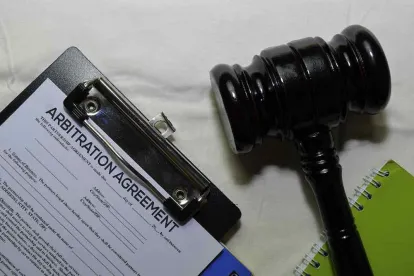The U.S. Supreme Court heard oral argument yesterday in two consolidated cases—ZF Auto. US v. Luxshare, Ltd.1 and AlixPartners v. The Fund for Prot. of Inv. Rights in Foreign States2—on whether 28 U.S.C. § 1782 (Section 1782) can be used to obtain information and documents in aid of private international arbitrations, or whether its application is limited to proceedings before foreign courts, foreign quasi-judicial proceedings, and other similar matters. The cases have the potential to resolve a circuit split on the issue, which has existed for some time, and indeed was the subject of a prior alert.3 ZF Auto. U.S. and AlixPartners were also the subject of a prior alert.4
ARGUMENTS FOR A NARROW INTERPRETATION OF SECTION 1782
Z.F. Auto, AlixPartners, and the Office of the Solicitor General argued that the text and history of Section 1782, as well as policy considerations, weighed against allowing discovery under Section 1782 in either case sub judice. All three parties agreed that to constitute a “foreign or international tribunal” under Section 1782, a body has to be both created and empowered by a sovereign and not by a private agreement (even if a sovereign is party to that agreement). Z.F. Auto and AlixPartners focused their arguments on the 1963 report by the House Commission on International Rules of Civil Procedure, which accompanied the proposed amendment to Section 1782 changing “court in a foreign country” to “foreign or international tribunal.” According to ZF Auto and AlixPartners, the report shows Congress intended to limit Section 1782 to only adjudicatory bodies that were established and empowered by sovereign states. The Solicitor General argued that Congress enacted Section 1782, in part, to enhance cooperation between the United States and foreign governments, which further evidences an intent to limit Section 1782 to proceedings before foreign courts, foreign quasi-judicial proceedings, and other similar proceedings.
ARGUMENTS FOR A BROAD INTERPRETATION OF SECTION 1782
Luxshare, on the other hand, argued that the plain meaning of “foreign tribunal” encompasses any adjudicatory body that is seated in a foreign country and is empowered to issue a final decision. The Fund for the Protection of Investor Rights in Foreign States (the Fund) focused its argument on the fact that, even if Section 1782’s application were limited to proceedings before foreign courts, foreign quasi-judicial proceedings, and other similar matters, the arbitration at issue in its case would qualify because it was established by an agreement between two sovereigns (Lithuania and Russia) and would resolve whether one of those sovereigns broke promises made in a treaty with the other sovereign. Both parties also indicated that it might be appropriate to limit discovery under Section 1782 to only those cases where the tribunal requests it.5
THE SUPREME COURT’S QUESTIONS
The Justices’ questions were wide-ranging and focused on a number of issues, including: 1) whether there was a meaningful difference between the private arbitration at issue in ZF Auto. US and the investor state arbitration at issue in AlixPartners, 2) why the Solicitor General opposed discovery in AlixPartners, and 3) why the issue of whether Section 1782 covers private international arbitrations was not a political question that should be left to Congress.
The Supreme Court will likely issue its decision on the cases by the end of summer 2022, which has the potential to be a significant development for parties engaged in international arbitrations, and domestic entities that might be the subject of applications for discovery under Section 1782.
1 ZF Auto. US v. Luxshare, Ltd., 142 S. Ct. 637 (2021).
2 AlixPartners v. The Fund for Prot. of Inv. Rights in Foreign States, 142 S. Ct. 638 (2021).
4 U.S. Supreme Court to Review Circuit Split Over Scope of 28 U.S.C. § 1782 for Obtaining Discovery in International Arbitrations
5 In rebuttal, ZF Auto argued that this solution is not workable in light of Intel, which held that a proceeding need only be “within reasonable contemplation” and not pending or imminent, to allow discovery under Section 1782. Intel Corp. v. Advanced Micro Devices, Inc., 542 U.S. 241, 259 (2004).







 />i
/>i
